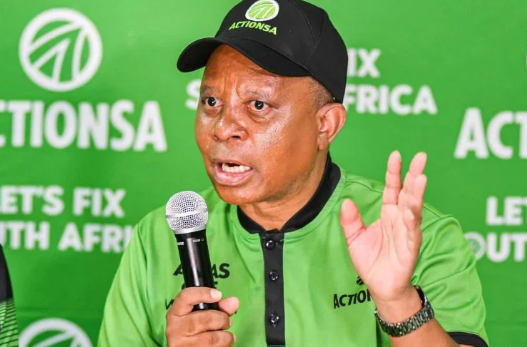It seems increasingly inevitable that the 0.5 percentage point VAT increase will take effect on 1 May, as the Western Cape High Court is only set to deliver its judgement on whether to interdict it on 29 April.
Both the DA and the EFF yesterday argued in court that the VAT increase should be stopped in its tracks.
Specifically, the procedural legality of the National Assembly’s passage of the fiscal framework and revenue proposals is being challenged.
But as the judgement is only being delivered 2 days before it is due to be implemented, it remains to be seen how the ship can be turned around, if the court does find in favour of the DA and EFF.
During its arguments, the EFF accused Finance Minster Enoch Godongwana of deception by creating the impression that his VAT hike could be reversed. In his responding affidavit, Godongwana said he always knew the increase would be implemented on 1 May.
During all of this, ActionSA, which voted with the ANC to get the fiscal framework adopted, has been making claims on the sidelines that the Democratic Alliance are actually the ones to blame.
This was after loudly proclaiming they scored a victory by stopping the VAT increase.
READ: ActionSA claims victory in getting VAT hike scrapped
Wait and see…
South Africans will have NO VAT increase, thanks to ActionSA and other parties who supported our proposal. pic.twitter.com/lCXWgmZdyP
— Herman Mashaba (@HermanMashaba) April 2, 2025
The party has now ‘revealed’ that the DA’s Deputy Minister of Finance, Ashor Sarupen, was ‘intimately’ involved in the budget process, particularly in drafting the original 19 February budget speech, which included the 2 percentage point VAT increase, and the subsequent revision to the split 1 percentage point increase.
They posted extensively on their social media accounts what they see as proof that the DA is complicit in the VAT increase, including a Parliamentary reply, dated 28 February 2025:

But as many on social media have pointed out, just because Sarupen was involved in talks about the budget, it does not necessarily mean that he agreed with the contents.
Yet, ActionSA has doubled down, accusing the DA of ‘cynically’ weaponising the VAT hike in a desperate attempt to salvage its political image and to ‘extract more influence in the GNU.’
This is even as ActionSA leader Herman Mashaba said they would consider joining the GNU if the DA decided to call it quits.
The party insists they entered budget negotiations with no ‘hidden motives, no secret deals, and no preconditions.’
“Our only strict conditions, on behalf of the people of South Africa, were no VAT increase and no income tax bracket creep. Our recommendations included in the fiscal framework report opened the only practical door to meaningful alternatives — and we backed it up with real solutions.”
There is one thing about the truth and that is that it always prevails. ActionSA was aware that the check mate in the GNU was going to delay the passage of the budget and that didn’t serve the interest of SA’s. We Acted! To act and fail is more honourable that not acting and… https://t.co/ES7v0gdiV4
— Athol Trollip (@AtholT) April 23, 2025
Speaking to the media on the steps of the Western Cape High Court yesterday, the DA’s chief whip George Michalakis said this case is a critical test of how parliament relates to executive decisions.
“The question we would like the court to answer is whether the minister can announce the VAT increase that comes into effect on May 1 before parliament has ratified this, whether he can do this without parliament, the representatives of the people.”
Lecturer in the Department of Public Administration and Management at the University of the Free State, Terrance Molobela, says Parliament passed the 2025 National Fiscal Framework without the formal amendment of the mounting VAT and tax hikes.
This was approved without binding recommendations, although budget committees suggested that the VAT and tax hikes be reconsidered at a later stage.
He says reversing the VAT increase would be a lengthy process. Once the budget is passed by Parliament, the Minister cannot unilaterally reverse the VAT increase.
“This is cemented by Section 12 of the Public Finance Management Act and Section 7(4) of the VAT Act. This ball is in Parliament’s court to reverse the budget and revenue proposal once alternative revenue generation proposal have been brought forward.”
What is clear is that South Africans will have a bitter pill to swallow on 1 May, as it becomes clear that the VAT hike cannot be stopped at this late stage.


